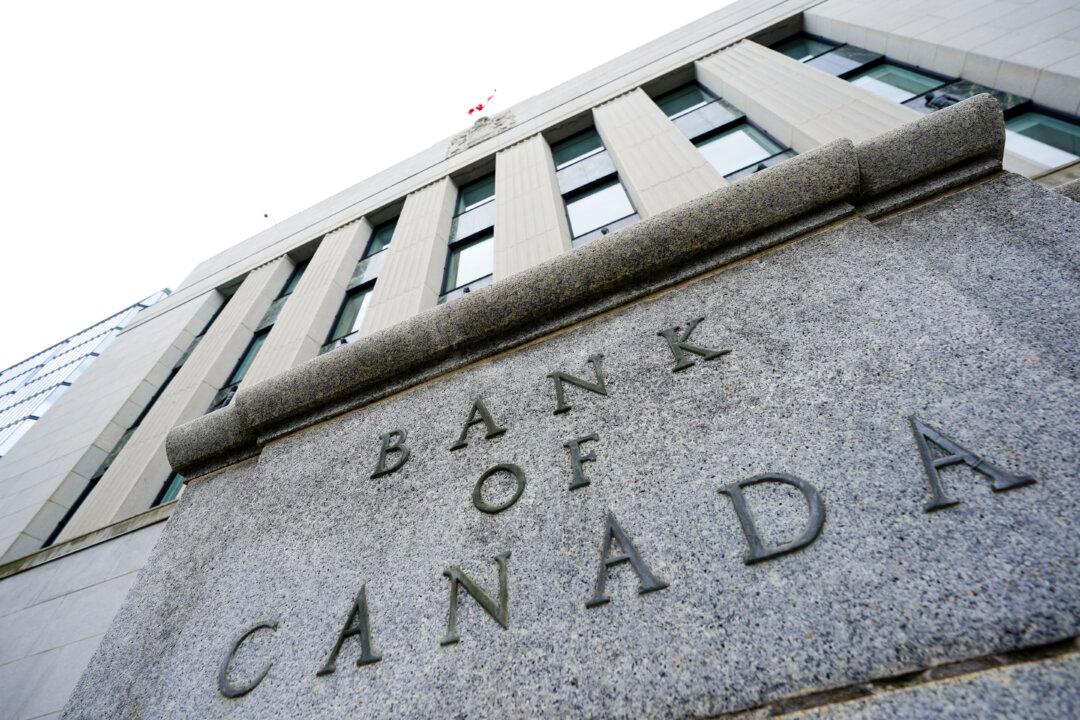OTTAWA—The Bank of Canada’s pause on raising interest rates lasted just over four months. Canada’s central bank raised its overnight rate target to 4.75 percent with a 0.25 percentage point (25 basis points) rate hike on June 7, in the face of mounting evidence of an economy that’s still running too hot.
The BoC cited a stronger-than-expected economy in the first quarter of 2023; however, it did not include in its June 7 statement language as it did on April 12 when it said it “remains prepared to raise the policy rate further.”
“Excess demand in the economy looks to be more persistent than anticipated,” the BoC said.
April’s annual inflation reading increased to 4.4 percent—the first increase in 10 months—from 4.3 percent in March. The BoC said in April that it expected inflation to come down to about 3 percent by the middle of the year. The bank reiterated this expectation on June 7.
The central bank said that three-month measures of core inflation, which exclude the more volatile items, have been running in the 3.5 percent to 4 percent range for several months and that “concerns have increased that CPI [consumer price index] inflation could get stuck materially above the 2 percent target.”
The Canadian economy grew considerably more in the first quarter (3.1 percent) than what the BoC was expecting (2.3 percent) when it published its most recent quarterly forecasts in April.
Consumers continue to spend and exports surged in the first quarter. Unemployment—5.0 percent in April—has not increased from extremely low levels and the housing market is strengthening.
The BoC said that higher immigration and labour participation rates are expanding the supply of workers but that it is quickly getting absorbed given the strong demand.
Higher Rates
In January, the Bank of Canada raised rates by 25 basis points and announced it would pause on hiking rates further to see how the economy and inflation evolved. The pause came after 4.25 percentage points of rate increases since early 2022.
According to a note from TD Securities on June 6, financial markets were pricing in about a 50 percent chance of a 25 basis points rate hike.
The overnight rate target of 4.75 percent is the highest it’s been since the spring of 2001.
The BoC provided commentary on the global situation, saying underlying inflation remains “stubbornly high” and that “major central banks are signalling that interest rates may have to rise further to restore price stability.”
The bank is monitoring to see if excess demand in the Canadian economy, expectations for future inflation, wage growth, and how companies set prices are behaving in a way that is consistent with achieving the 2 percent inflation target.
The BoC is continuing its policy known as “quantitative tightening” where it reduces the size of its balance sheet by allowing bonds it bought to stimulate the economy to mature without reinvesting the proceeds in additional bonds.





